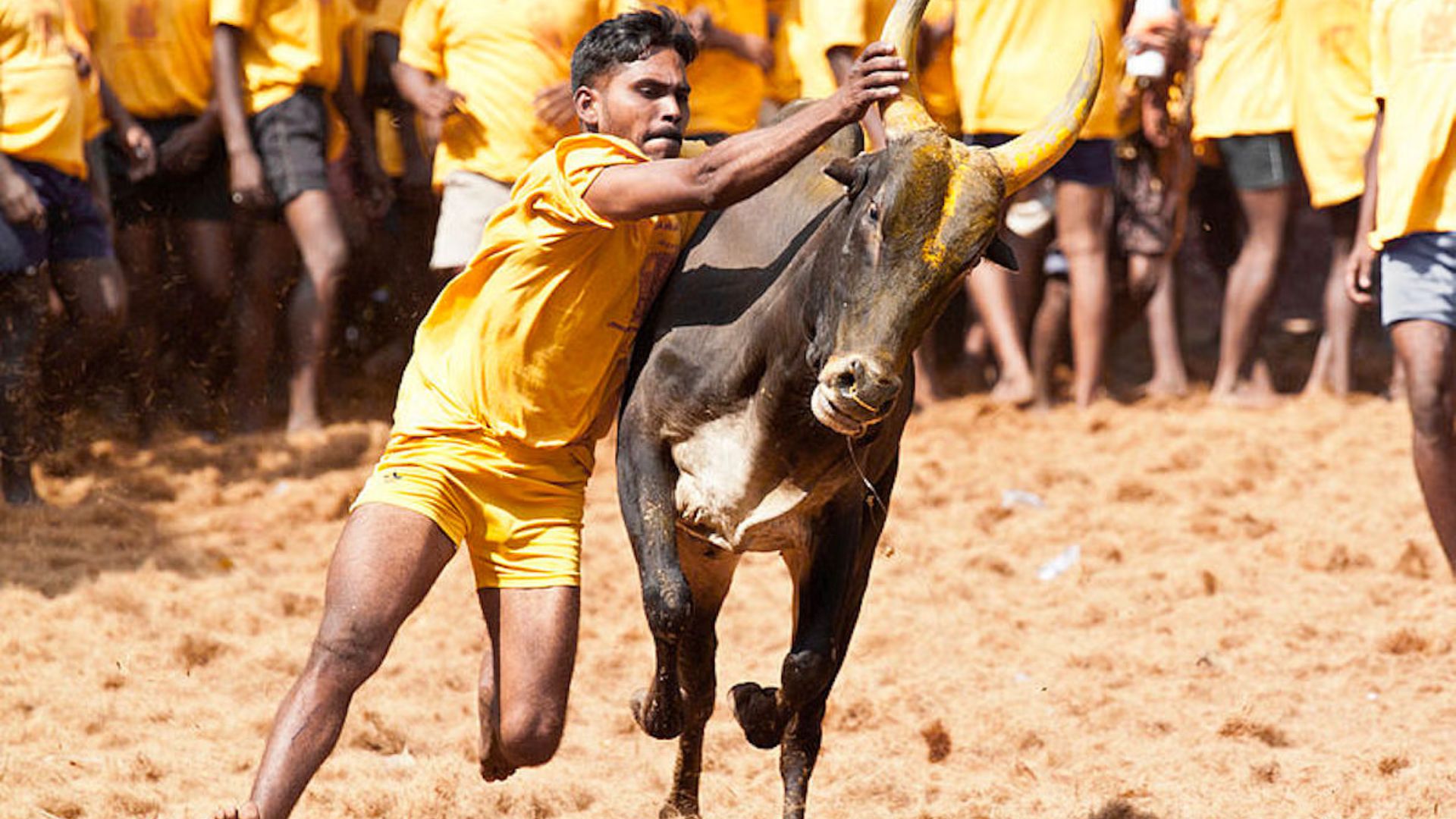The Jallikattu competition kicked off in Periya Suriyur Village, located in Tamil Nadu’s Tiruchirappalli district on Tuesday. This traditional bullfight, with roots dating back approximately 2,000 years, was originally conducted to select suitable bridegrooms.
The Suriyur Village Jallikattu event features 700 bulls and 350 tamers as participants. Authorities have deployed over 600 police personnel to ensure security during the competition.
Jallikattu, an ancient practice predominantly celebrated in Tamil Nadu during Pongal festivities, involves releasing a bull into a crowd, where participants attempt to seize the bull’s large hump to bring it to a halt.
Despite concerns about potential injuries to both participants and bulls, animal rights organizations advocated for a ban on the sport. However, following prolonged protests against the ban, the Supreme Court upheld the Tamil Nadu government’s law permitting Jallikattu in the state in May 2023.
The Constitution bench, comprising Justices KM Joseph, Ajay Rastogi, Aniruddha Bose, Hrishikesh Roy, and CT Ravikumar, heard petitions challenging the laws of the Tamil Nadu and Maharashtra governments regarding Jallikattu and bullock cart races. The Tamil Nadu government defended Jallikattu, asserting that it is a cultural event without cruelty towards the bulls.
Brief history of ‘Jallikattu’
The history of Jallikattu dates back to 400-100 BCE, played by the Ayars, an ethnic group in India. The term “Jallikattu” originates from “Jalli” (silver and gold coins) and “Kattu” (tied). Pulikulam or Kangayam is the bull breed used for the sport, and winning bulls command high prices in the market, as they are sought after for breeding purposes. Jallikattu is traditionally celebrated on the third day of Pongal, known as Mattu Pongal Day.







